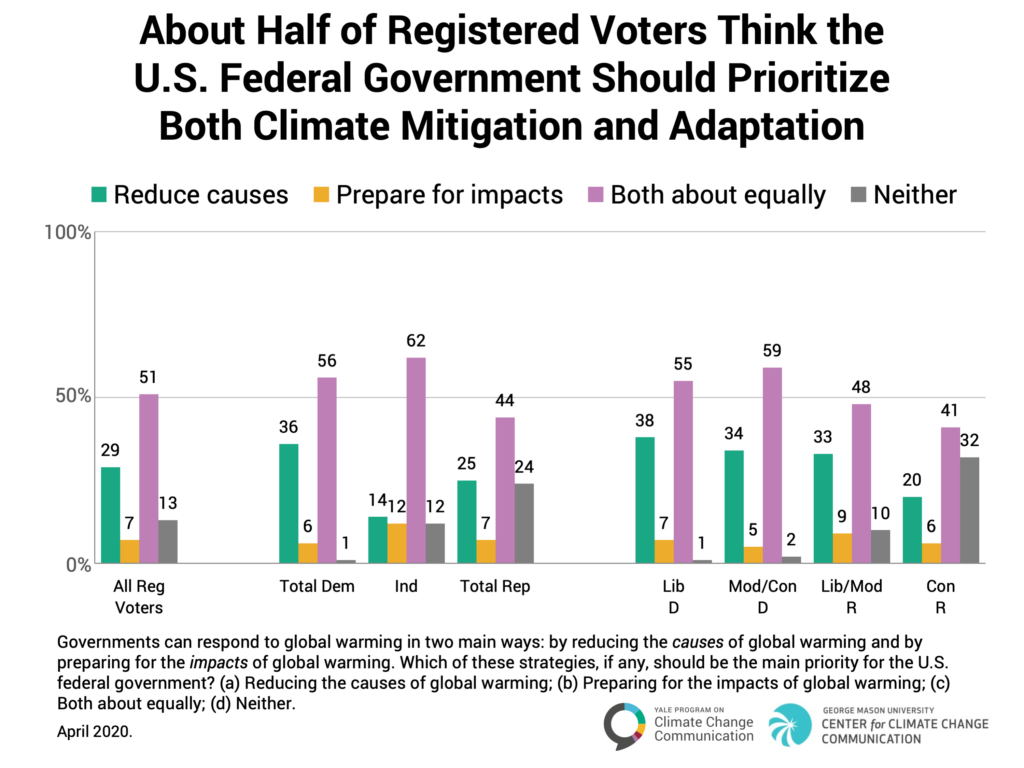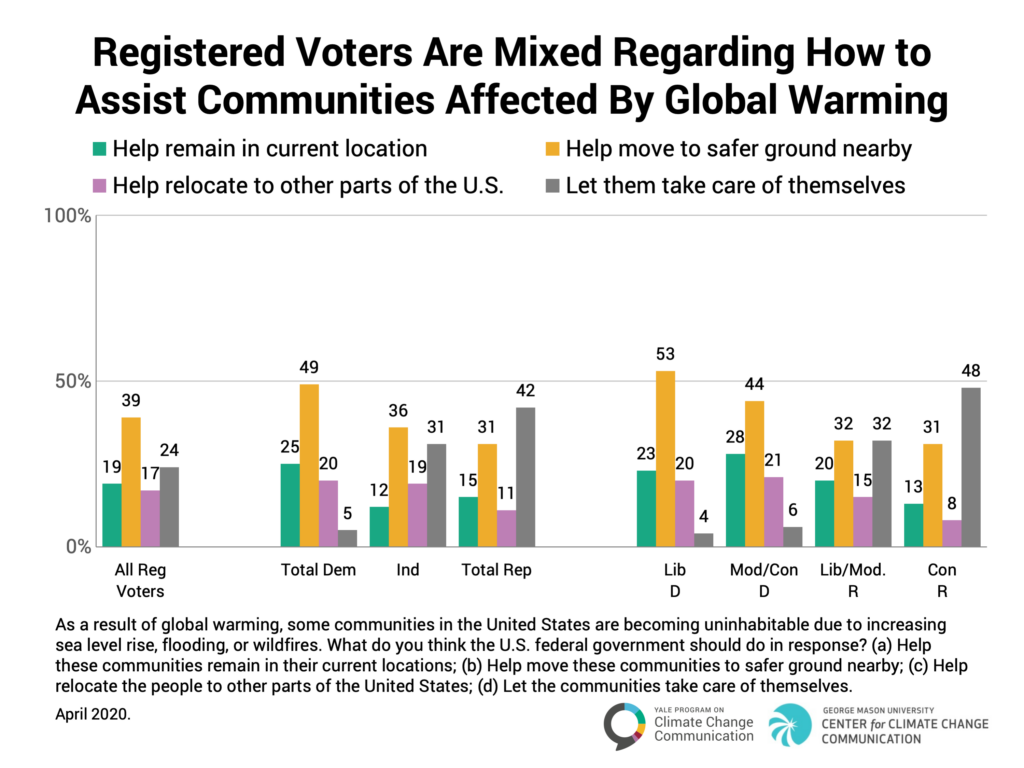Report · Jun 4, 2020
Politics & Global Warming, April 2020
By Anthony Leiserowitz, Edward Maibach, Seth Rosenthal, John Kotcher, Matthew Ballew, Parrish Bergquist, Abel Gustafson, Matthew Goldberg and Xinran Wang
Filed under: Beliefs & Attitudes, Behaviors & Actions and Policy & Politics
7. Mitigation and Adaptation Policies
7.1. About half of registered voters think the U.S. federal government should prioritize both climate mitigation and adaptation.
About half of registered voters (51%) think the U.S. federal government should prioritize climate mitigation (reducing the causes of global warming) and adaptation (preparing for the impacts of global warming) about equally, with an additional three in ten (29%) saying the main priority should be mitigation, and 7% saying it should be adaptation. Thirteen percent of registered voters (including about one in four Republicans; 24%) say the federal government should not prioritize either of these approaches.
7.2. Registered voters are mixed regarding how to assist communities affected by global warming.
Registered voters hold mixed opinions about what the U.S. federal government should do to assist communities that are becoming uninhabitable due to the effects of global warming such as increasing sea level rise, flooding, or wildfires. About one in five (19%) think the government should help these communities remain in their current locations, while more (39%) think the federal government should help communities move to safer ground nearby. Fewer (17%) think the government should help relocate people to other parts of the country. About one in four registered voters (24%) think the government should let the communities take care of themselves.
Democrats are most likely to say the federal government should help communities move to safer ground nearby (49%) while Republicans are most likely to say the communities should take care of themselves (42%).

